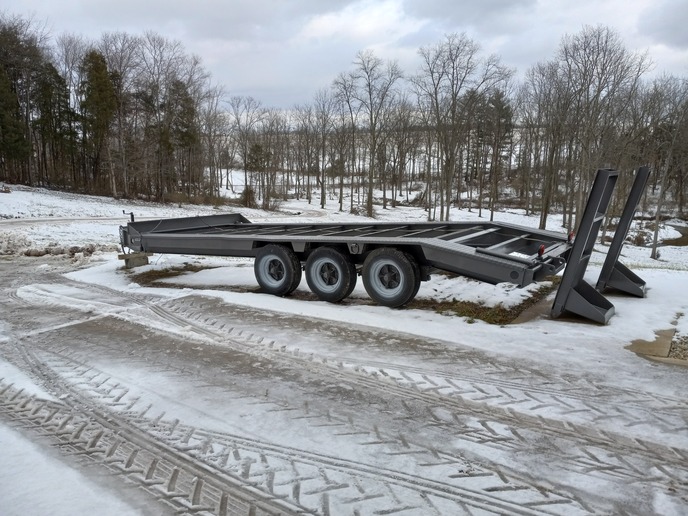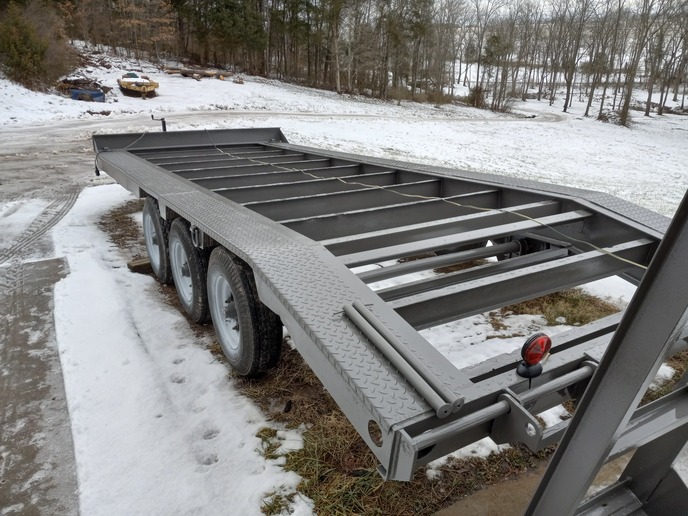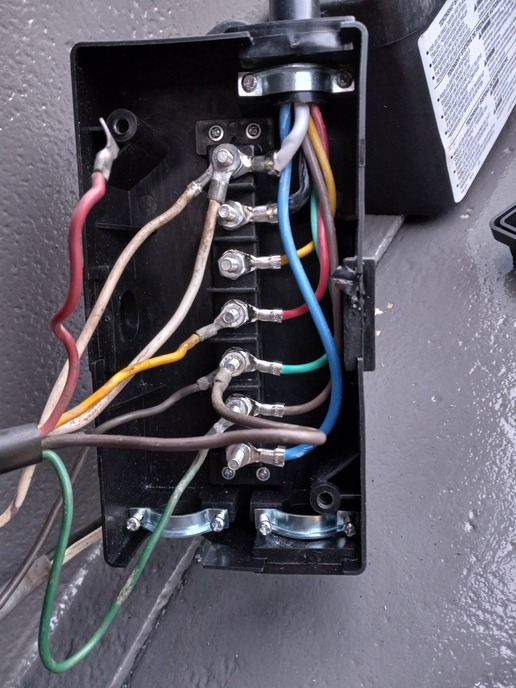Please educate me. I'm working on refurbishing this trailer and part of that involves a new trailer electrical plug and distribution box, breakaway switch and battery box on the trailer. The distribution box has studs for ground, 12v hot, backup/auxiliary, left turn, marker, right turn, and trailer brakes.
There are two wires coming off of the breakaway switch. One wire goes directly to the trailer brake wire in the distribution box. The other goes to the positive side of the battery. The negative side of the battery goes to the ground wire in the distribution box.
My question is about hooking a wire from the 12v hot in the distribution box to the positive side of the battery. There is power here when the key is on. This should charge the battery on the trailer whenever it is hooked to the truck. My question is will this cause the trailer battery to overcharge or will the voltage regulator/alternator on the truck prevent overcharging?
Looking online, some trailer batteries/breakaway switches come with chargers built in and some do not. This one does not have one built in.



There are two wires coming off of the breakaway switch. One wire goes directly to the trailer brake wire in the distribution box. The other goes to the positive side of the battery. The negative side of the battery goes to the ground wire in the distribution box.
My question is about hooking a wire from the 12v hot in the distribution box to the positive side of the battery. There is power here when the key is on. This should charge the battery on the trailer whenever it is hooked to the truck. My question is will this cause the trailer battery to overcharge or will the voltage regulator/alternator on the truck prevent overcharging?
Looking online, some trailer batteries/breakaway switches come with chargers built in and some do not. This one does not have one built in.





